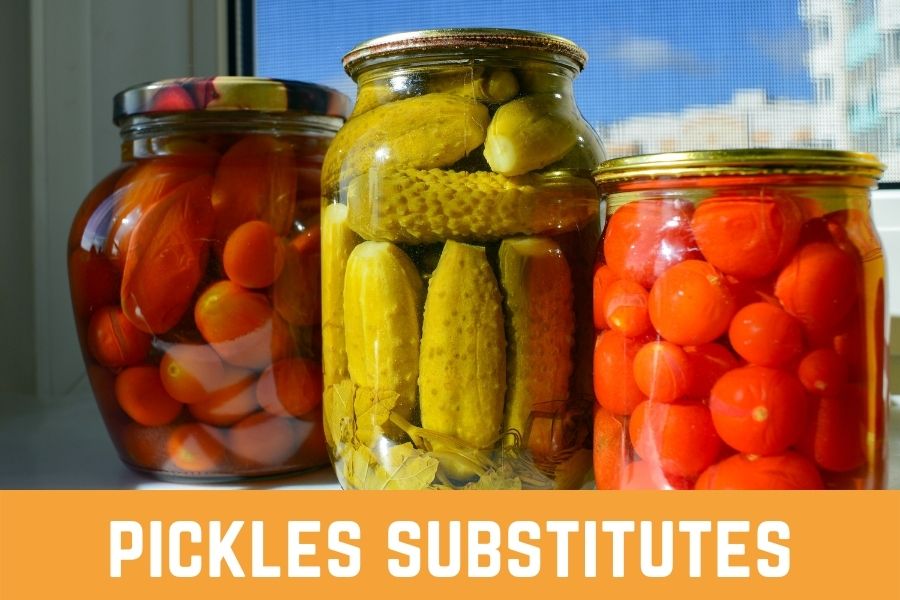Pickles are indispensable for tartar sauce.
They are also used in hamburgers and other dishes to add a clean sour taste and crisp texture to the food.
However, when you are about to make tartar sauce, do you find yourself saying, I don’t have any pickles! Are you in trouble?
Oh no! I don’t have any pickles. What should I do?😩😩😩
Or you may also find that you don’t like the unique sour taste of pickles.
In such cases, I recommend using pickle substitutes!
In this article, I will introduce you to “foods that can be used instead of pickles” that will help you when you are in trouble, so please check it out!
What is a pickle?
To begin with, a pickle is a vegetable or fruit that has been pickled in salt or vinegar.
Pickled cucumbers and zucchini are often used in burgers and tartar sauce.
However, in fact, a variety of vegetables and fruits can also be used for pickling, including carrots, bell peppers, onions, cherry tomatoes, oranges, and apples.
Pickling in vinegar is the most common type of pickle, and there are also recipes for spontaneously fermented pickles that can be preserved, as well as shallow pickled types.
All you have to do is mix vinegar and sugar and pickle-cut vegetables and fruits, so it’s easy to make at home!
I recommend these 10 pickle substitutes
Pickle Substitute 1: Radish
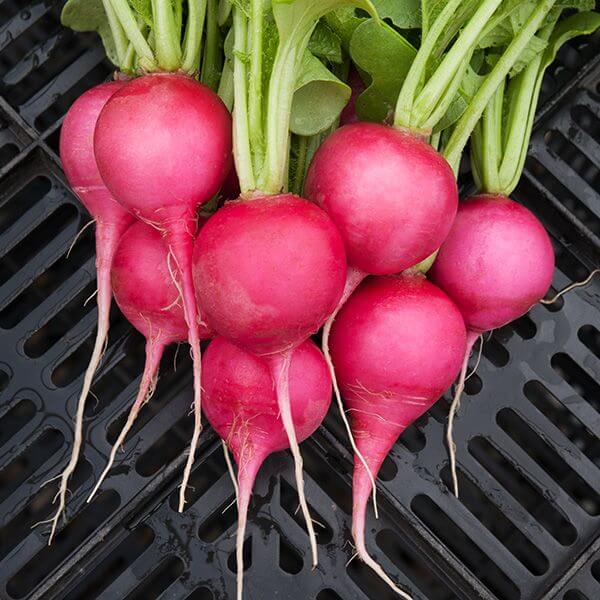
Rakkyo is eaten in sweet vinegar or salted pickles.
With its crunchy texture and not much difference in taste, it can be used as a substitute for pickles.
Pickled rakkyo can also be used as an accompaniment to rice, and even if you have leftovers from making tartar sauce, you can still use them.
It can also be used as a snack, so it is easy to use at home.
Pickle Substitute 2: Takwan
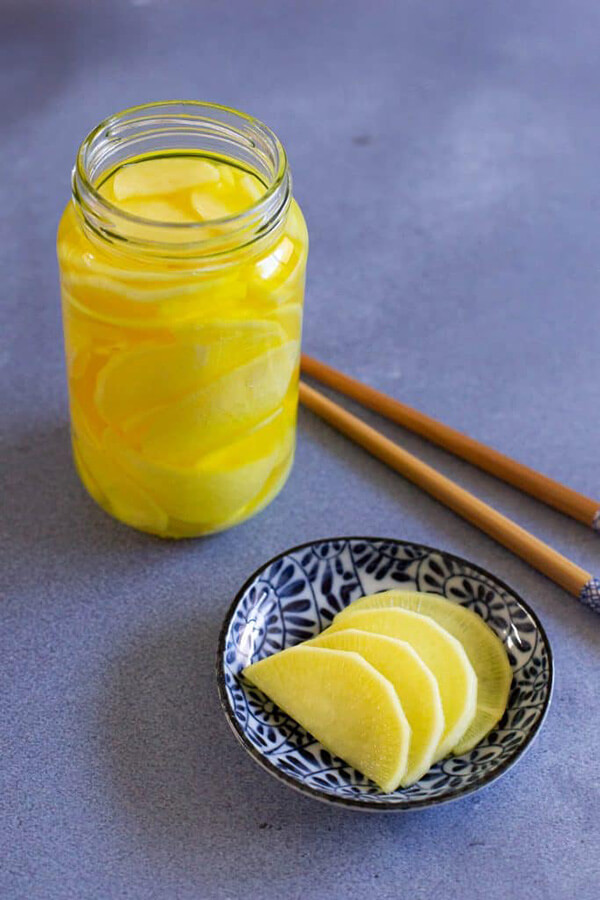
Pickles are a great way to relax after a long day of eating Japanese food.
It is a food made by pickling daikon radish with rice bran and salt and is also called takuan.
Depending on the seasoning of the takuan, it differs from a pickle in that it has a Japanese flavor.
However, with its crunchy texture and moderate saltiness, it is a good substitute for pickles.
Substitute for pickle 3: Crunchy plums
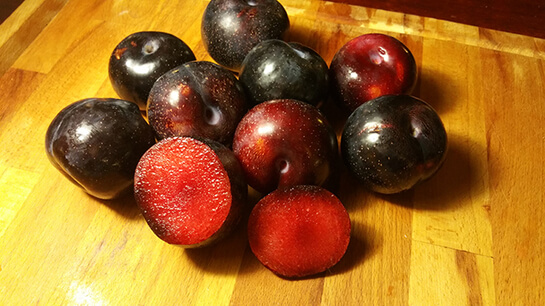
Crunchy plums” are made by harvesting young plums and soaking them with shiso leaves, salt, and vinegar.
Because of its high acidity, it is a good accent for lightly seasoned menus and just right for tea.
Even red crunchy ume can be used as a pickle for tartar sauce if the seeds are removed and chopped finely.
However, due to its strong flavor, it is not recommended as a substitute for pickles for hamburgers.
Substitute for pickles 4: Pickled Chinese cabbage
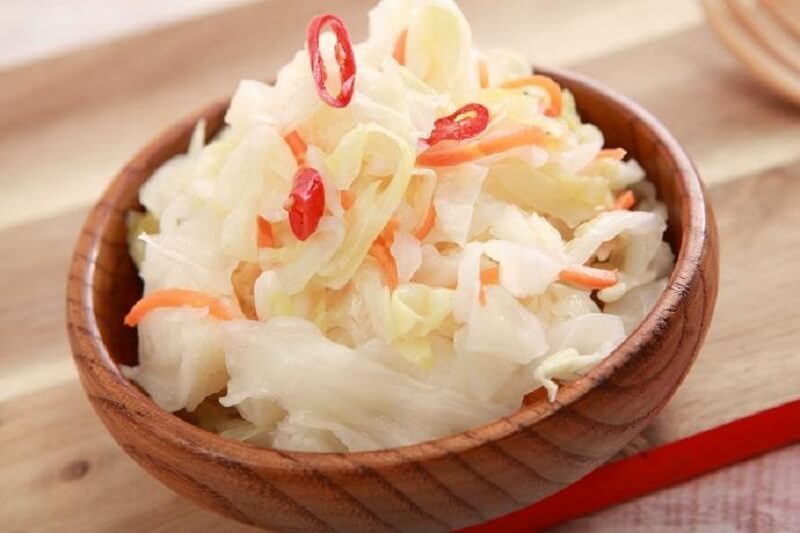
Pickled Chinese cabbage” has a gentle flavor and is a perfect addition to Japanese dishes.
Since it is a relatively inexpensive vegetable in winter, some people may eat it at home as a light pickle.
It is also sold in supermarkets throughout the year, so it is one of the most familiar pickled vegetables.
When using them as a substitute for pickles, the key is to use the crispy part of the stem.
The leafy part is softer and contains more water, so it is not a good substitute for pickles.
If you chop the white stems finely, you can use them to make tartar sauce!
Pickle Substitute 5: Capers
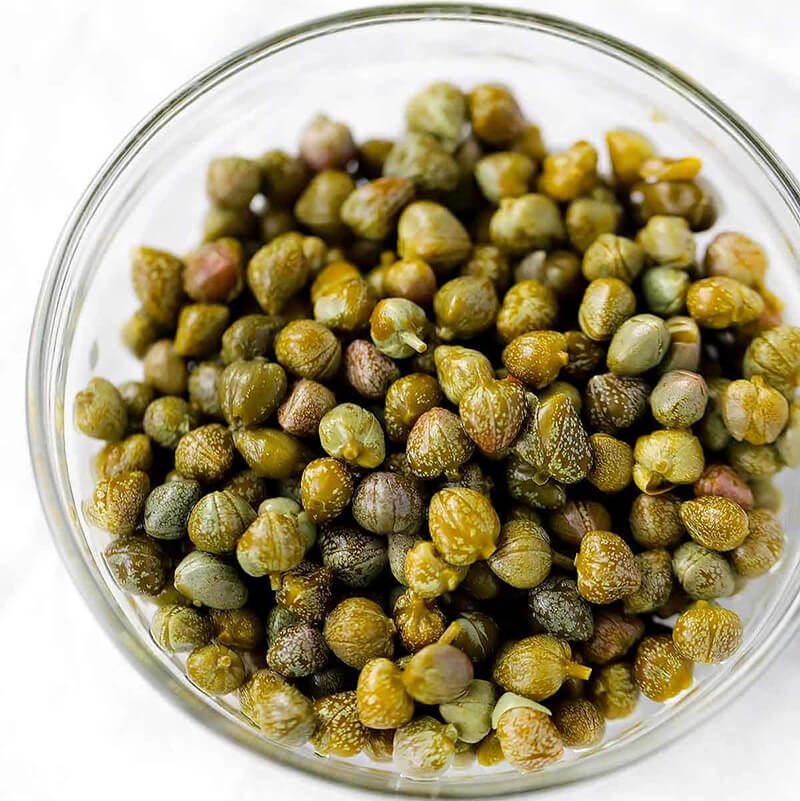
Capers are food made from the buds of tree flowers that have been pickled.
It may not be a familiar name, but it is mainly used in European cuisines, such as French and Italian.
It is characterized by its strong sour and salty taste, as vinegar and salt are used just like Japanese pickles.
Although it doesn’t have the crunchiness of a pickle, you will be able to recreate a pickle with its petite texture.
Substitute for pickles 6: Pickled olives
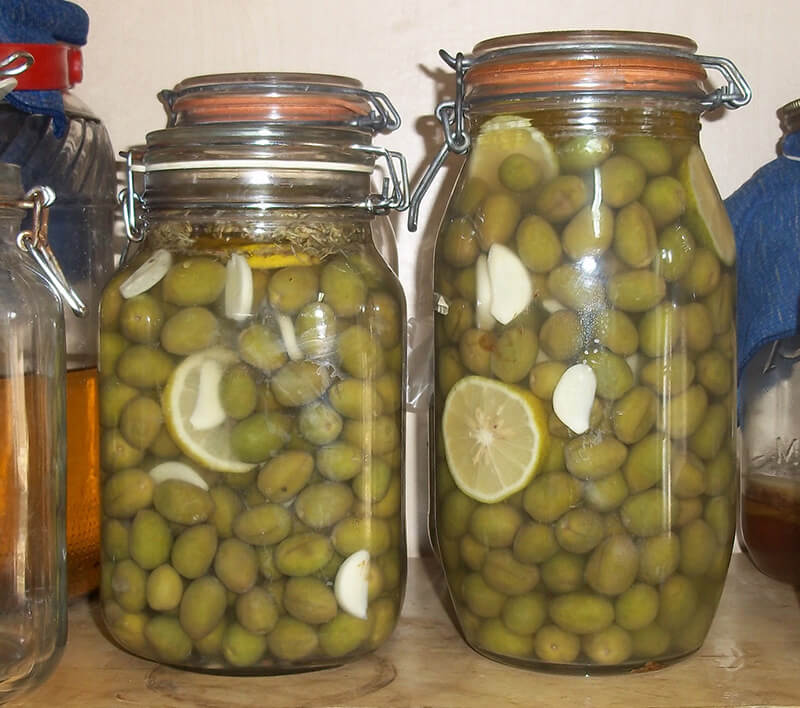
Pickled olives are olives that have been pickled with salt and vinegar.
Olives are mostly produced in Italy and Spain.
Olive oil is a familiar food in Japan, but olives can also be eaten.
Pickled olives have a slightly less crunchy texture than pickles made from cucumbers, etc., but since they are a Western-style pickle, they are a good substitute for pickles.
Substitute for Pickles 7: Fukujinzuke
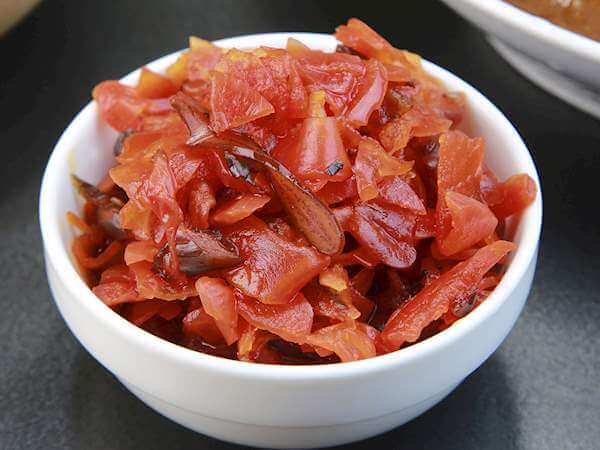
Fukujinzuke is the perfect accompaniment to curry and rice.
It has a crunchy texture and is a good substitute for pickles.
To begin with, fukujinzuke is made by finely chopping daikon, eggplant, lotus root, etc., removing the salt, and pickling them with soy sauce and sugar.
Unlike pickles pickled in vinegar, it has a slightly sweet flavor, but it can be used for tartar sauce.
Substitute for pickles 8: Pickled rice
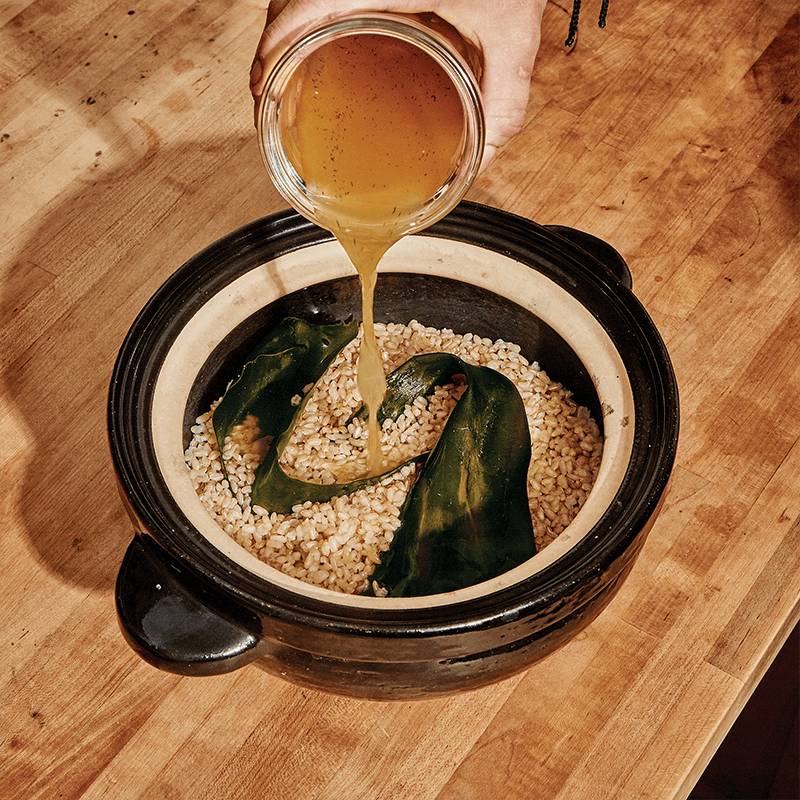
Nukazuke is one of the traditional Japanese pickles.
It is a food made by pickling vegetables with rice bran, water, and salt, and the key to making it is to let it ferment naturally.
Pickles are also sometimes made by fermentation, and the process is similar.
Cucumbers, radishes, and other crispy pickles can be used in place of pickles without any problem.
If you don’t like the unique aroma of pickles, try using a different kind of pickle.
Substitute for Pickles 9: Red Ginger
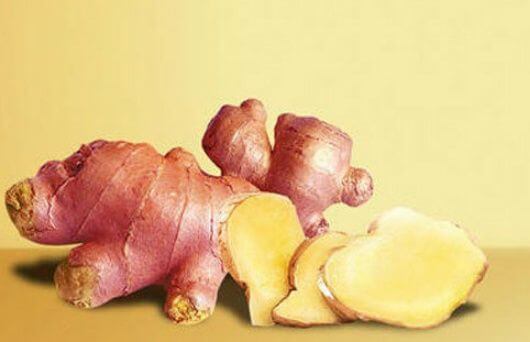
Red ginger is an indispensable topping for takoyaki and okonomiyaki.
It is a food made by marinating ginger in plum vinegar and is characterized by its bright pink color.
The clean sourness of the ume vinegar and the flavor of the ginger is the key to adding a refreshing accent to dishes.
It is similar to pickles in its sourness and texture, and if you use chopped red ginger, you can use it as an ingredient for tartar sauce.
Substitute for Pickles 10: Pickled Takana
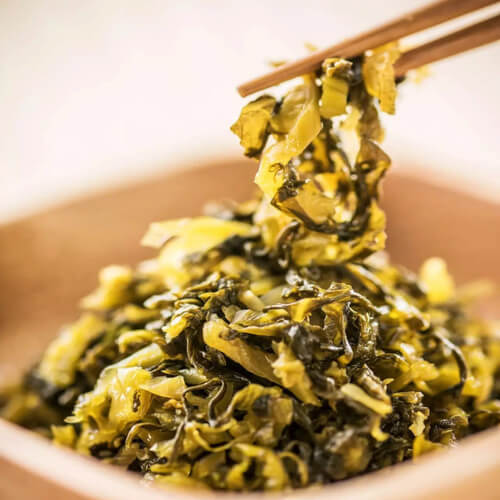
Takana pickles are a great accompaniment to rice.
Its crunchy texture and moderate saltiness stimulate the appetite.
It is often pickled with salt and other ingredients, and although it is not sour, it is similar to the texture of a pickle.
If you want the fresh sourness of a pickle, try adding some vinegar!
Foods that are not good substitutes for pickles
Foods that are not recommended as substitutes for pickles are vegetables with high water content.
If they are to be mixed in with food or put between bread or other dishes, the high water content will make them watery.
Therefore, vegetables with high water content such as cucumbers and tomatoes should not be used in their raw form.
Also, if you want to use it as a pickle, be sure to drain the water well before use!
Summary
- Pickles are foods made by pickling vegetables and fruits with salt and vinegar.
- The following 11 items are recommended as substitutes for pickles. [Rakkyo, takuwan, crunchy ume, pickled Chinese cabbage, capers, pickled olives, fukujinzuke, pickled rice, red ginger, pickled takana].
- When using pickles as a substitute, be careful of the amount of water.
